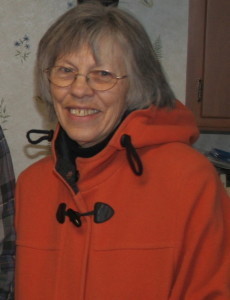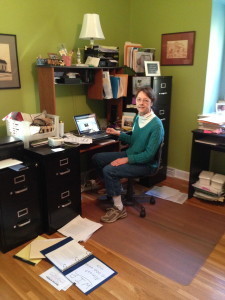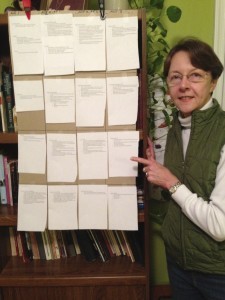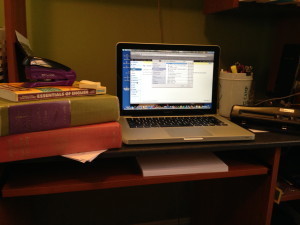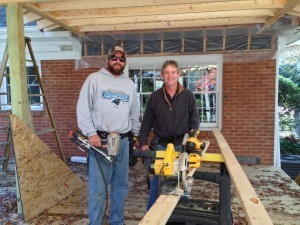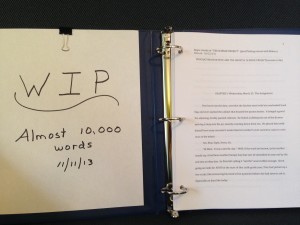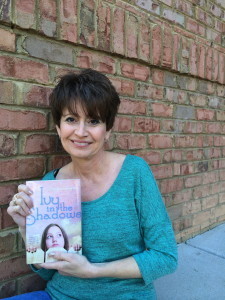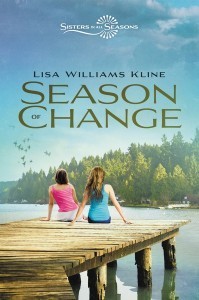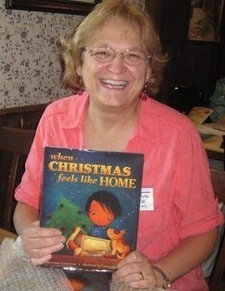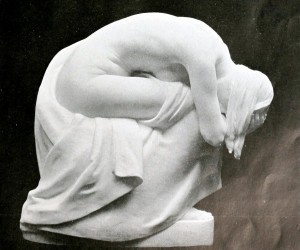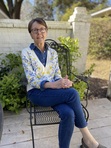Linda Vigen Phillips's Blog, page 10
November 18, 2013
Dissociative Identity Disorder: What Lynn Jerabek Has to Say About It
LP: I am pleased to welcome my good friend, Lynn Jerabek, here today to talk with us about her book, How Many Me’s. I met Lynn in 2009 when we both attended the Highlights Foundation Writers Workshop at Chautauqua. We formed an immediate bond when we discovered we were both writing novels about mental disorders. Lynn is at that exciting and scary point of launching her manuscript out into the world in search of a home.
LJ: First, Linda, let me say thank you for inviting me to participate on your interesting blog. You have already interviewed Lyn Miller-Lachmann, a friend in my local critique group, on her new release, Rogue. I am honored to be in such company.
LP: Your book is about dissociative disorder, not something that everyone is familiar with. What is it and how did you come to write a novel about it?
LJ: Dissociative Identity Disorder, DID for short, used to be known as Multiple Personality Disorder and may still be recognized by that term. People who have DID have developed many hidden personalities, usually unknown to the ‘core person.’ These ‘alter personalities’ endured intolerable abuse, which the person experienced starting in very early childhood. Rather than a sickness, DID is a wonderful way some minds have of protecting themselves from any conscious knowledge of the abuse: what happened, who did it, how it felt—everything about it is known only to the alter personalities, allowing the child to grow up with a healthy core.
While volunteering on a helpline, I met a woman who was diagnosed with DID. Her therapist dropped her from his caseload and she turned to the helpline volunteers. Over the course of twelve years, I learned much and listened and prayed for and sat with her as memories surfaced, flashbacks occurred, and alters were identified and healed and integrated back into the core of her personality. Today she has one totally integrated self. She has earned an MSW and is a highly respected counselor. That gives me hope.
This is why I wanted to write Emily Perskee’s story. It is totally fictional, but relies heavily on the experiences of several people I know who have had DID and are healed or healing. I hope that for some the book will be entertaining and enlightening, and that for others, who might have a need to know, it will point the way to self knowledge and help and hope.
LP: You are at a strategic place in the life of an author. Your book is ready to be sent out on the agent/editor quest. Which are you targeting and what is your game plan or approach?
LJ: I am reading websites of both agents and editors who have worked on books that are similar to mine and also books that I just like. Industry books like Harold Underdown’s Complete Idiot’s Guide to Publishing Children’s Books and Ariel Eckstut and David Henry Sterry’s The Essential Guide to Getting Your Book Published are never out of reach. And of course, my critique group. Where would any writer be without one?
I will first offer my book to agents and editors I have met at conferences and workshops. This whole business seems very personal and I think I would rather have some small acquaintance with such an important person in my writing career from the get go. Many years ago when I was learning to sew in 4H, I was told that setting in sleeves, zippers, matching plaids–all were difficult. Of course, that good news made those skills harder than they really were. Now this is hard, but I am trying to look on the bright side and be positive. That can’t hurt, can it?
LP: What have been your most significant, instructive, and supportive writing associations along the way?
LJ: It all started when I clipped a coupon for the Institute of Children’s Literature. During work for their introductory course, I identified Emily as my character and her story began to be written as the course progressed. That correspondence course was very helpful. I only wish I had taken the publishing business part more seriously. But who knew?
Then there was the 2009 Highlights Conference at Chautauqua, NY. Peter Jacobi was my mentor. He encouraged me and showed me how words can make all the difference. I owe him a lot! And to Chautauqua I owe you, Linda, since it was on that 5-hour ride back east that we talked about everything that matters and became friends.
In 2010 I attended a Whole Novel Workshop at the home of Highlights in Boyds Mills, PA. Steven Roxburg was my mentor there. He said this very important thing to me: “The story is important and could really help some hurting kids, but, even more than the DID stuff, you have to get the writing right or it will never get published.” Since then I have been trying to get the writing right!
Second Sight by Cheryl Klein and her workshop by the same name taught me how to map my ms and see the parts of it separately and then as a whole. This was very helpful, too.
The North East New York SCBWI group and the critique group that formed out of it have given me invaluable help. Thanks to them for keeping the project alive.
LP: What is your emotional barometer telling you right now? In other words, what is the most exciting and what is the most daunting part of trying to find a home for your book?
LJ: My emotional barometer? Oh, my! The most exciting part is the hope that the thing will actually see the light of day and be published. The most daunting, even more than the work, is the fear that it may not see daylight after all. But truth to tell, I am more hopeful than daunted. I feel there is a purpose behind the effort and that Steven Roxburg was right: it is important. Is that too optimistic?
LP: Experts say you should already be working on your next book. Are you, and if so, what is it about?
LJ: Ah yes. The next book. It is, of course, more about this wonderful character, Emily Perskee. I have written several disconnected scenes giving back-story that answers some questions neither asked nor answered in How Many Me’s, but in need of exploration. And closer to my heart, I will take Emily through some of her healing process; not all of it because I would not wish to imply that one size fits all. And there may be a wedding.
LP: What advice do you have for writers who are at this stage of the game, ready to start the submission process?
LJ: What advice could I give those of you who are just putting tippy toes into this great stream? Stay close to the lifeguards and just keep swimming!
LP: Great advice, Lynn!
****************************
Hey READERS, we would love to hear from you.
Is your MIND FULL of old thoughts or new?
November 11, 2013
The Construction Zone
November is National Novel Writing Month, better known as NaNoWriMo in writerly circles. You can officially sign a commitment online to churn out a 50,000 word novel or you can modify the plan, like I have, and use the framework to challenge yourself unofficially. Theoretically it is designed to help writers begin a new work from scratch, but I am using it to rewrite a Middle Grade novel.
As if this isn’t excitement enough, I have another challenge going on right outside my office window, and I can’t resist a little metaphorical fun.
This is my construction zone,
and here is my design plan (plot chart) for my WIP (Work in Progress).
Outside my window,
Steve Neal and Clay Gilbert with Noah Warren Home Improvements have turned our backyard into a construction zone.
Here is the design plan (architectural rendering) for this WIP, our new deck and screened porch.
Some of the tools of my trade are my computer, dictionary, thesaurus, sticky notes, hole punch, highlighter and stapler,
while Steve and Clay use their hammer, nail gun, saws, tool belts, leveler, and ladder.
Sometimes in the building business, you leave a pile of debris
and sometimes, you need to try a new angle to get all the pieces to fit together.
But last week, I added (almost) 10,000 words to my project
And Steve and Clay added over 1,000 square feet of plywood to theirs.
Whether you build with words or lumber, I wish you much success in achieving your goal this week! And fellow NaNoWriMo writers, I’d love to hear how your construction site is coming along.
November 4, 2013
Losing Weight/Gaining Self-Esteem
I’m an advocate of good mental health, and good mental health is often closely related to good physical health. Danielle Dooley is my 22-year-old Great Niece who has made some choices in her life that have impacted her physical and mental well being.
I am totally impressed with her determination and success in a weight-loss regimen and I am happy to have her here today to talk about her journey. Her story recently caught the attention of her local newspaper,The News Review, in Roseburg, Oregon. In that interview she was asked what prompted her to take steps to get healthier. She replied:
“I felt like I had lost my confidence and some of that was because I didn’t like the way I looked because of the weight I had gained. I had a doctor’s appointment, and the doctor suggested it would be a good idea for me to lose some weight, especially if at some point I wanted to have a baby, because being heavier can make it difficult to conceive. I also saw some old pictures from when I was younger, and I realised how much weight I had gained. I started this journey really focused on getting healthy, not just losing weight.”
LP: How has exercise figured in your plan? Do you have a specific routine? What exercise has worked best for you?
DF: Exercise is very important in my new lifestyle. I work out 3-4 times a week. My exercise can vary from going on a walk with my family, to washing my car, to a group exercise class. My favorite type of exercise is Zumba. I love Zumba because that hour class goes by very quickly. It is such a fun way to get exercise. Zumba is a high intensity cardio workout. It works key muscles like your core, arms, and legs.
LP: Did you follow a special diet or devise your own plan?
DF: I have followed a plan. I do Weight Watchers. I could not speak more highly of this program. It truly works because they are teaching you how to eat right. It is not a quick fix. It takes a dedicated person who is willing to change and put in the effort to get a new lifestyle. I weigh in weekly at the local meetings. This helps me stay accountable every week.
LP: How has your success affected your general outlook? Has it changed how you feel about yourself, food, or any other aspect of life?
DF: Losing the weight and starting my new lifestyle has changed a lot of things for me. I love the way I look on the outside but most importantly I love the way my outlook on life has changed. I never have to not do something because “I am too big.” I can do anything I physically want to do. I don’t have to worry about sitting in a certain chair and if it can hold me, or whether or not I should go try that activity or not because I may be too big to do it.
LP: What have been the high and low points so far, and what is your plan going forward?
DF: The high points for me are when I discover something new about my weight loss and how my body has changed. For instance, when I go to try on a pair of pants that I never imagined I could wear and then they fit. What an awesome experience! As far as low points go, I really can’t think of any. I knew going into this new lifestyle that I would not be perfect, but I told myself that if I messed up I would never give up and get right back to what I knew I was supposed to do. As far as what I plan to do going on from here, I will continue my new lifestyle, eating healthy and exercising.
LP: Do you have any advice for others?
DF: Never give up! If you make poor choices don’t give up! If you haven’t even started the journey yet, then now is the time. Don’t wait till tomorrow. Start with little changes that will eventually turn into bigger changes. For me this time it was successful because I truly wanted it and was 100% willing to put in the work. That is the key point. You have to be able to put in the work.
LP: Thanks, Danielle, for being willing to share your inspiring journey. If anyone wants further encouragement either to begin the quest or to stay the course, I highly recommend Donna Cooner’s book, Skinny.
********************
Congratulations to Tom Schott who won the giveaway of Chris Woodworth’s book, Ivy in the Shadows from last week’s post.
October 28, 2013
Chris Woodworth Talks about Ivy in the Shadows and Gives it Away
Photo by Brandon Lee
Congratulations to Heather Raglin who won the giveaway drawing for Lisa Kline’s book, SEASON OF CHANGE.
I’d like to welcome our featured guest today,Chris Woodworth, who will talk to us about her writing journey and leave a copy of her most recent book, IVY IN THE SHADOWS, for a giveaway. If you leave a comment you will automatically be entered in the drawing to be announced Monday, Nov. 4.
LP: Thanks for being with us today, Chris, and congratulations on the release of IVY IN THE SHADOWS in February, 2013. I’m always interested to find out what people, places, or events have shaped the course of your writing journey?
CW: I think the writing journey doesn’t happen until you fall in love with books. My mom tells me that my Dad used to read to me. I don’t remember that but I do remember hitting puberty and it seemed as if he didn’t quite know what to do with me. I wasn’t the same kid he had taken fishing and mushrooming. One day he held this book in his hands and told me that it was one he had just finished and thought I’d like. He read all the time and I felt special when he asked me to join him in reading adult books. We passed books back and forth for years.
My mom didn’t let me stray far from the house but she did let me ride my bike to the library by myself. I loved those trips along with the smell of the place and feeling grown up with this new freedom.
My first book, WHEN RATBOY LIVED NEXT DOOR was dedicated to my parents for these two reasons. Unfortunately my dad passed away right before its release but he was a huge help to me as I wrote it and was so proud and excited. One of my last gifts to him was the dedication.
LP: IVY IN THE SHADOWS deals with eavesdropping and honesty, two very relevant middle grade issues. Share with us how your idea for this book came about and how it evolved through the writing process.
CW: My mom and aunt, while sisters, were also best friends so they spent many days together. I had one brother and two boy cousins. When I got bored with guy activities, I’d wander into the house. Mom and my aunt knew I was there but they were so caught up in their stories they didn’t pay much attention to me. They said little things in front of me that seemed so juicy at the time. In reality, they weren’t anything special. But I quickly picked up on how different they were with each other as girlfriends than as a mother and aunt. That’s what launched the idea of Ivy and how, if you’re eavesdropping, you can’t really ask questions so your perception can really be off.
In our hometown, we had a family whose daughters traveled to Haiti to do mission work. They sent their journals back home and the local papers published them. They are such a nice family and when I approached them about including some of their stories in my book, they were very gracious. I wanted to write about a boy who told outrageous tales of this foreign place and what a bad example Ivy thought he was for her little brother and how upset she was that it didn’t seem to concern her mother at all. The Haiti mission stories fit perfectly.
LP: Tell us a little about the process of getting an agent and the pros and cons of having an agent at all.
CW: I started out writing picture books and, although I came close a couple of times, never sold one. In those days I didn’t have an agent and I was the type of person who couldn’t send something out and forget about it. I also spent a lot of time studying the market and who was publishing what type of books. It can be time consuming and I know nothing about contracts. I really felt I was the type who would benefit from having an agent to take care of those things.
When I finished my first novel, I acquired an agent and he sold it right away. So, while I’ve been represented by a couple of agents, I haven’t been without one for any length of time. For that reason, I think I’ve been out of the loop long enough that I’m not sure what the process is these days.
I know it’s important to be on the same page with an agent on what you feel your relationship should be. I heard a talk once where a writer compared it to online dating. He said that even though you ask the right questions, you often don’t know if you’re a good fit until you’re in the relationship. All you can really do is figure out what it is you want from the author/agent relationship and do your homework. Ask for references and be selective.
LP: The writing life is sometimes a wild ride. What highs and lows stand out in your memory?
CW: Selling a book never gets old and holding the finished product in your hand almost feels magical. That may sound a little over the top but, really, it’s such hard work and so much goes into it. How could it not be thrilling? Hometown book signings are a blast. People you love show up and share the excitement of a book launch. I have amazing family and friends in Indiana and sharing that moment with them is certainly a highlight.
As for lows, those are easy enough to list. Rejections, no matter how nicely put, are always difficult. We’ve all had disappointing book signings. You never know how they will turn out. No matter how much publicity a bookstore puts into them, some people are very uncomfortable coming up to your table and looking at your book.
LP: Can you name one or two of the most significant or helpful events or moments that have profoundly affected your writing?
CW: At my first SCBWI conference, I paid to have a critique. I’d never been to a conference, never taken a writing class, nor did I have any writer colleagues. I assumed that I’d be handed a packet with a few notes at the end of the day. When I found out I would sit down with an editor, I seriously thought I’d be sick. I had never met an editor but knew how tough the business was to break into. I couldn’t imagine this would go well, however, she was lovely. She really encouraged me and asked me to send her any future projects. I wrote and sent some really bad stuff but she always read and always commented. I never wrote anything she could use but I know that her feedback is what kept me going.
I’ve also been blessed to stay with the same publisher (Farrar, Straus, & Giroux) for all my books and have had two incredible, yet different, editors in Beverly Reingold and now the talented Joy Peskin. Both of these women are great at nurturing a writer and I can’t stress enough what a difference that makes.
Last, but by no means least, forming a critique group that has lasted since 1999 is one of the best moves I ever made. I would be lost without my writing partners. We are an online group and stay in touch by having weekly one-hour chats. I think those chats are what has made us successful because we aren’t just editing text. These stories are real to us, as well as the author, because we know the stories behind them.
LP: What are you working on now and what is the tentative time-frame?
CW: Last year I started a YA and abandoned it fifty pages later. Sometimes I think fifty pages are all it takes before you realize this isn’t a story you want to pursue. Now I have an idea that’s really in the embryonic stage and I’m a little too superstitious when it comes to my work to talk about it just yet. Hopefully I’ll be able to tell you more about it soon.
LP: Any advice for new/young writers?
CW: It’s the same advice we hear all the time but it’s still good. Never stop reading. Buy your own copy of Children’s Writer’s and Illustrator’s Market so you can read it, mark it up, and let it become your bible. Join SCBWI. Attend conferences. Most importantly, put way more thought and time into writing a really good story than into trying to get published.
LP: Thanks for being willing to share your wisdom, Chris. Readers, don’t miss this opportunity to leave a comment and get in on the giveaway for Chris’s most recent book, IVY IN THE SHADOWS.
Christ Woodworth Talks about Ivy in the Shadows and Gives it Away
Photo by Brandon Lee
Congratulations to Heather Raglin who won the giveaway drawing for Lisa Kline’s book, SEASON OF CHANGE.
I’d like to welcome our featured guest today,Chris Woodworth, who will talk to us about her writing journey and leave a copy of her most recent book, IVY IN THE SHADOWS, for a giveaway. If you leave a comment you will automatically be entered in the drawing to be announced Monday, Nov. 4.
LP: Thanks for being with us today, Chris, and congratulations on the release of IVY IN THE SHADOWS in February, 2013. I’m always interested to find out what people, places, or events have shaped the course of your writing journey?
CW: I think the writing journey doesn’t happen until you fall in love with books. My mom tells me that my Dad used to read to me. I don’t remember that but I do remember hitting puberty and it seemed as if he didn’t quite know what to do with me. I wasn’t the same kid he had taken fishing and mushrooming. One day he held this book in his hands and told me that it was one he had just finished and thought I’d like. He read all the time and I felt special when he asked me to join him in reading adult books. We passed books back and forth for years.
My mom didn’t let me stray far from the house but she did let me ride my bike to the library by myself. I loved those trips along with the smell of the place and feeling grown up with this new freedom.
My first book, WHEN RATBOY LIVED NEXT DOOR was dedicated to my parents for these two reasons. Unfortunately my dad passed away right before its release but he was a huge help to me as I wrote it and was so proud and excited. One of my last gifts to him was the dedication.
LP: IVY IN THE SHADOWS deals with eavesdropping and honesty, two very relevant middle grade issues. Share with us how your idea for this book came about and how it evolved through the writing process.
CW: My mom and aunt, while sisters, were also best friends so they spent many days together. I had one brother and two boy cousins. When I got bored with guy activities, I’d wander into the house. Mom and my aunt knew I was there but they were so caught up in their stories they didn’t pay much attention to me. They said little things in front of me that seemed so juicy at the time. In reality, they weren’t anything special. But I quickly picked up on how different they were with each other as girlfriends than as a mother and aunt. That’s what launched the idea of Ivy and how, if you’re eavesdropping, you can’t really ask questions so your perception can really be off.
In our hometown, we had a family whose daughters traveled to Haiti to do mission work. They sent their journals back home and the local papers published them. They are such a nice family and when I approached them about including some of their stories in my book, they were very gracious. I wanted to write about a boy who told outrageous tales of this foreign place and what a bad example Ivy thought he was for her little brother and how upset she was that it didn’t seem to concern her mother at all. The Haiti mission stories fit perfectly.
LP: Tell us a little about the process of getting an agent and the pros and cons of having an agent at all.
CW: I started out writing picture books and, although I came close a couple of times, never sold one. In those days I didn’t have an agent and I was the type of person who couldn’t send something out and forget about it. I also spent a lot of time studying the market and who was publishing what type of books. It can be time consuming and I know nothing about contracts. I really felt I was the type who would benefit from having an agent to take care of those things.
When I finished my first novel, I acquired an agent and he sold it right away. So, while I’ve been represented by a couple of agents, I haven’t been without one for any length of time. For that reason, I think I’ve been out of the loop long enough that I’m not sure what the process is these days.
I know it’s important to be on the same page with an agent on what you feel your relationship should be. I heard a talk once where a writer compared it to online dating. He said that even though you ask the right questions, you often don’t know if you’re a good fit until you’re in the relationship. All you can really do is figure out what it is you want from the author/agent relationship and do your homework. Ask for references and be selective.
LP: The writing life is sometimes a wild ride. What highs and lows stand out in your memory?
CW: Selling a book never gets old and holding the finished product in your hand almost feels magical. That may sound a little over the top but, really, it’s such hard work and so much goes into it. How could it not be thrilling? Hometown book signings are a blast. People you love show up and share the excitement of a book launch. I have amazing family and friends in Indiana and sharing that moment with them is certainly a highlight.
As for lows, those are easy enough to list. Rejections, no matter how nicely put, are always difficult. We’ve all had disappointing book signings. You never know how they will turn out. No matter how much publicity a bookstore puts into them, some people are very uncomfortable coming up to your table and looking at your book.
LP: Can you name one or two of the most significant or helpful events or moments that have profoundly affected your writing?
CW: At my first SCBWI conference, I paid to have a critique. I’d never been to a conference, never taken a writing class, nor did I have any writer colleagues. I assumed that I’d be handed a packet with a few notes at the end of the day. When I found out I would sit down with an editor, I seriously thought I’d be sick. I had never met an editor but knew how tough the business was to break into. I couldn’t imagine this would go well, however, she was lovely. She really encouraged me and asked me to send her any future projects. I wrote and sent some really bad stuff but she always read and always commented. I never wrote anything she could use but I know that her feedback is what kept me going.
I’ve also been blessed to stay with the same publisher (Farrar, Straus, & Giroux) for all my books and have had two incredible, yet different, editors in Beverly Reingold and now the talented Joy Peskin. Both of these women are great at nurturing a writer and I can’t stress enough what a difference that makes.
Last, but by no means least, forming a critique group that has lasted since 1999 is one of the best moves I ever made. I would be lost without my writing partners. We are an online group and stay in touch by having weekly one-hour chats. I think those chats are what has made us successful because we aren’t just editing text. These stories are real to us, as well as the author, because we know the stories behind them.
LP: What are you working on now and what is the tentative time-frame?
CW: Last year I started a YA and abandoned it fifty pages later. Sometimes I think fifty pages are all it takes before you realize this isn’t a story you want to pursue. Now I have an idea that’s really in the embryonic stage and I’m a little too superstitious when it comes to my work to talk about it just yet. Hopefully I’ll be able to tell you more about it soon.
LP: Any advice for new/young writers?
CW: It’s the same advice we hear all the time but it’s still good. Never stop reading. Buy your own copy of Children’s Writer’s and Illustrator’s Market so you can read it, mark it up, and let it become your bible. Join SCBWI. Attend conferences. Most importantly, put way more thought and time into writing a really good story than into trying to get published.
LP: Thanks for being willing to share your wisdom, Chris. Readers, don’t miss this opportunity to leave a comment and get in on the giveaway for Chris’s most recent book, IVY IN THE SHADOWS.
October 21, 2013
Meet Lisa Kline and Win SEASON OF CHANGE
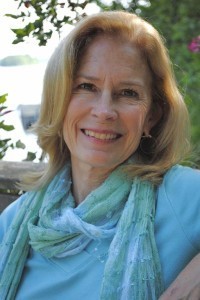 Congratulations to Laurie Cramer for winning a copy of WHEN CHRISTMAS FEELS LIKE HOME. Leave a comment (and your email if I don’t have it) and win a copy of Lisa Kline’s book, SEASON OF CHANGE.
Congratulations to Laurie Cramer for winning a copy of WHEN CHRISTMAS FEELS LIKE HOME. Leave a comment (and your email if I don’t have it) and win a copy of Lisa Kline’s book, SEASON OF CHANGE.
Today I am pleased to welcome award-winning author Lisa Kline, who will share some thoughts on her writing journey.
LP: I’m always interested to know when you first knew you were going to be a writer. And what were you writing when you felt like your career was really taking off?
LK: I wanted to be a writer even in elementary school. I wrote and illustrated a series of stories about Little Horse and Little Lamb, best friends, on that wide-lined paper we used in first and second grade. Later, in about fifth grade, I wrote the beginning of a novel about a brother and sister on a barefoot trek across the mountains of North Carolina in search of penicillin for a brother with strep throat. Someone asked why they didn’t just go to the drug store and I realized that my plot was ridiculous and stopped writing!
It’s funny, about a career “really taking off,” because a writer friend and I were talking at a recent SCBWI Conference, and we were saying that those who haven’t been published yet look at us and think, “Wow! They’ve really made it!” And those of us who are midlist authors look at the blockbuster authors and say “Wow! They’ve really made it!” And without a doubt the blockbuster authors have their own worries. I honestly have never felt like my career was “really taking off.” I’ve been thrilled to sell manuscripts, and pleased to receive good reviews, but I’ve always had my feet kept firmly on the ground by also having manuscripts that didn’t sell and sometimes receiving not-so-great reviews. I have four unpublished manuscripts stacked on the floor of my office! I don’t feel too bad about that because I was just listening to a podcast the other night where immensely popular YA author Sarah Dessen described the stack of unpublished manuscripts in her closet. And she still goes through tremendous self-doubt with every book, just like I do.
What Anne Lamott has said is true: the joy in writing is in the process itself, not in accolades or publication. And there is additional joy in the friendships of other writers.
LP: Your debut book, Eleanor Hill, won the North Carolina Juvenile Literature Award. Tell us about that journey. What inspired the book? How long did it take to write? How did winning that award affect your writing going forward?
LK: At my grandmother’s funeral, my mother told me that she had been one of the first women in New Bern, North Carolina to learn to drive a car. This caught my imagination. Later, my mother gave me my grandmother’s letters and photos, saved over her entire lifetime, from the time she was about ten, in 1909, to her death in 1985. I didn’t do anything with them for many years, but later became fascinated by and immersed in the story told by those letters and photos, and decided to write a fictional version of her life as a young woman. I spent about three years researching and writing Eleanor Hill. I was shocked and thrilled to win the award and it certainly gave me confidence to continue. In a way, though, winning with my first book made me think that achieving success with writing was easier than it really is.
LP: You wrote two stand-alone books in between Eleanor Hill and your five part series, Sisters in All Seasons. Share some of the challenges of writing stand alone books versus a five-part series.
LK: I had always planned to write stand-alone books. I didn’t dream of a series. I liked the idea of a fresh new set of characters, new circumstances, new themes, with each book. With both Princesses of Atlantis and Write Before Your Eyes, I did have more time to develop characters and story. But in my series, I came to love my characters so much, and they were with me, two pages a day, then three pages a day, for over two years. I grew with them. It was an experience I would never trade.
LP: The writing life is a roller coaster at times. What have been the highest and the lowest points in your career so far?
LK: Wow, yes, my writing life has been a roller coaster. That’s a great question.
Low point: Once I received my MFA, though I’d learned so much about writing, I became paralyzed by the knowledge of how many immensely gifted people there were out there. I have always been a hard worker, well-aware of the limitations of my talent, but I became persuaded that hard work would no longer be enough. When I sold Write Before Your Eyes to Delacorte, I felt as though I’d been given a second chance, but then my editor passed on my next novel. After that, I sank into a depression. I took a teaching job and completely stopped writing for several years.
High point: I’ve had lots of high points. Early in my career, of course the high point was winning the N.C. Juvenile Literature Award. Later, another high point came with the sale of Write Before Your Eyes to Delacorte. Another after Summer of the Wolves came out and received an excellent review from Kirkus. And another came when I started receiving copies of the Sisters in All Seasons books every time they went into reprint, with a note of congratulations from Zondervan. Every time I received a reprint announcement, I had to pinch myself. It felt surreal.
LP: Do you have an agent, and either way, what do you feel are the pros and cons of having an agent in today’s children’s market?
LK: I do have an agent, Caryn Wiseman of Andrea Brown Literary Agency. She’s terrific. She’s in close touch with the marketplace, and I’m sure she’s been able to negotiate better terms for me than I could negotiate myself. She gives me excellent feedback on my manuscripts – and she doesn’t surgarcoat it, Sundance! I really depend on her.
LP: You’ve had three different publishers. Tell us how and why that came about.
LK: Talented writer friends of mine have editors who publish every book they write, but this hasn’t happened to me. Twice now, after publishing one or two of my books, a publishing company has decided to pass on my next. Each time, Caryn has found another home for the book. This business can be tough, and I feel truly grateful and lucky for the chances I’ve had.
LP: Thank you, Lisa, for giving us such insight into the writer’s life and for donating SEASON OF CHANGE. Readers, don’t forget to leave a comment to be eligible for this great giveaway! (And Lisa has let it be known that if you win the drawing and already have this one, she may be able to swap it out for one of her other books.)
October 14, 2013
When Does Christmas Feel Like Home?
Today I am privileged to feature Gretchen Griffith, author of the recently released picture book, When Christmas Feels Like Home. I first met Gretchen some years ago when we were both in the same critique group in Charlotte. Recently we reconnected at the SCBWI conference and I am happy she is here to share some of her story with us today.
LEAVE A COMMENT AND I WILL PUT YOUR NAME IN THE HAT FOR A GIVEAWAY. THIS LOVELY BOOK WOULD MAKE A PERFECT CHRISTMAS GIFT FOR YOUR KIDS OR GRANDS! WINNER WILL BE ANNOUNCED MONDAY, OCT. 21.
LP: Tell us a little about your writing journey and how you have gotten to this point in your career.
GG: I graduated from Appalachian State University with a major in elementary education and a graduate degree in reading. I worked several semesters for the children’s literature professor there and through her influence developed a passion for writing. I went on to a career in teaching, dabbling in writing every so often, but usually I was too busy grading papers and raising a family.
LP: Your first book, Lessons Learned: The Story of Pilot Mountain School, and your recent release, Called to the Mountains: The Story of Jean L. Frese are both adult non-fiction. What inspired your recently released picture book, When Christmas Feels Like Home?
GG: I am a project oriented person, see something to do and get it done. I wrote the children’s book first as an entry into the annual fiction contest sponsored by Highlights for Children, although I had mulled it around in my mind for several years. I work with exchange students as they acclimate themselves to our culture and as our students go abroad to other cultures. They are always wanting to know, “When will this strange house feel like home?” Our orientation materials help them look for mileposts and one that I often use is Christmas. By Christmas, it will feel like home.
LP: Walk us through some of the editorial processes with your publisher, Albert Whitman. What was the time span from inception of the book to publication date and what were some of the “challenges” of that process?
GG: This was a long process. Looong. Six years, at least. When my article didn’t win the fiction contest, I put it in a drawer and forgot about it for over a year. I ran across a posting on another author’s blog that mentioned Albert Whitman & Company was looking for picture books, intercultural, international themed work. I pulled the manuscript back out of the drawer, revised and submitted. The editor responded positively and we started a back and forth discussion. Then she retired and a new editor stepped in, worked with me on her vision of the manuscript. Then she retired and a new editor stepped in, worked with me on her vision of the manuscript. Then she was moved into another department and a new editor stepped in, the fourth and final. There were several major changes, mostly making the book key in on Christmas. In the first version, Christmas was only the final step. One of the early emails to me was“if you move Christmas to the beginning of the book, we’ll look at it again” kind of revision. Changes during the final stages were more for word choice. Most I agreed with, a couple I held firm on my selection.
LP: Do you have an agent, and if not, how long did it take you to find your publisher?
GG: No, I do not have an agent as yet, although I’m actively applying. I was fortunate to find a publisher who was looking for what I had. Actually, let me rephrase that, because it was not exactly a good luck kind of fortune. It was hard work. I would spend time daily looking through blogs and postings by editors and authors. I still do, only now I’ve refined it to twitter postings and links from those. There are several blogs I follow that share publishing news and needs.
LP: We all know there is no allowable dialogue between author and illustrator. Are you satisfied with your illustrations? Was the recurring dog your idea and is there some significance to that?
GG: I am in love with my illustrations! And no, I had no input although I did mention somewhere along the line that the main character, Eduardo, couldn’t have brothers because the story line of his being alone wouldn’t fit. I was sent a few sketches as the process went along and then the pdf of the almost final version. Isn’t the dog a cutie! There’s no significance for me, perhaps for the artist, but I think it adds another dimension to the story. It gives the younger readers something to look for while the book is being read to them.
LP: What are you working on now?
GG: I have two nonfiction projects on the table now, one of adult, one middle grade. And of course, I have oodles of manuscripts in the drawer just waiting for the perfect time and place to once again see the light of day. It’s an exciting business!
LP: Thanks for being here today, Gretchen, and leaving a copy of your book for a lucky winner!
October 7, 2013
Blog Tour Interview
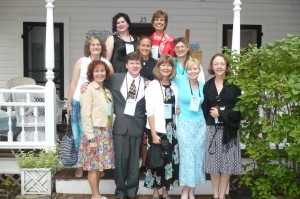 Highlights Foundation Writers Workshop at Chautauqua
Highlights Foundation Writers Workshop at Chautauqua
Today I am honored to be invited on a blog tour by fellow writer, Gretchen Griffith, who will be a guest on this blog next week. Writers (and hopefully our readers) can gain from exchanging ideas and walking through both the successes and the challenges of the writing world. The above picture was taken a few years ago at an invaluable workshop where, after an intense week, my debut book got the work-over it needed to finally become publishable. It’s that kind of exchange of ideas that really make a difference in a writer’s world.
If you’ve dropped in before, you know that I am ever-so-patiently (right!?) awaiting the release of my debut book, CRAZY, about a year from now. It’s a YA novel written in free verse, about a teenage girl coming to terms with her mother’s bipolar disorder. While it is fiction it is semi-autobiographical, having evolved into a novel from a loose group of twenty poems written mostly out of my own cathartic need to deal with those unresolved issues.
At this point in the game, I don’t have a cover to share, or a trailer, or an exact release date, but if you hang around, I will most certainly blast you with all of that information and more in the forthcoming months.
In the meantime, I am trudging away on my second book, not written in verse, not Middle Grade but YA, not a female but a male protagonist. This time around I am mining my past in a different way. I taught learning disabled elementary and middle graders for many of my teaching years, and out of that is emerging a character who has ADHD and dyslexia. I love Jack Gantos’s character Joey Pigza and Joan Bauer’s Foster, and Patricia Reilly Giff’s Sam, all of whom I have reviewed here (see blog references) and who have some form of learning disability. I hope my book and my protagonist will depict the world of the learning disabled half as ably as any of these books.
Along the writing trail I have discovered that I am more a panster than a plotter. That is, I fly by the seat of my pants more often than not. Check this article out for a complete discussion of these two methods. http://www.samhainpublishing.com/2009/04/plotter-vs-panster/
Most of the time charts, diagrams and outlines make me feel like I’ve been chained to the fence on a hot afternoon. I suspect that comes from having written mostly poetry earlier in my writing career. I tend to write in bursts and splurts and can go on for hours when the juice is flowing. But the catch is, the juice machine tends to dry up intermittently or run on a sporadic schedule. Lately I’ve been thinking maybe a little more “plotting” might be in order, and so might a little more discipline in the management of my free-wheeling life of retirement! But I AM determined and my second book WILL get written.
I hope you will follow this blog tour to fellow writer Joyce Moyer Hostetters’s site at joycemoyerhostetter.blogspot.com where I know you will be both enlightened and impressed by her work. Thanks for dropping in to see me and do come back again!
September 30, 2013
An Excerpt from CRAZY: “Art Exhibition”
In celebratory anticipation of the release of my debut book, CRAZY, about one year from now, I offer this second excerpt. (See Excerpts tab for the first one)
ART EXHIBITION
First thing inside the door
I smell turpentine.
I nearly trip over a wet canvas
propped against the door frame.
I follow a trail of smudgy rags
and scattered paint tubes
into the living room
where I find Mama,
her back to me,
kneeling
muttering
crossing herself
before a dripping canvas.
She’s been painting again!
“Hail Mary, Mother of God. . . ”
A sickening sense of panic begins
crawling up my spine.
“What’s going on, Mama?” I ask.
“Hail Mary, Mother of God. . .”
I’m not sure she heard me
so I move toward her,
bending down to look into her face
and I say it slower
louder
trying to connect with her eyes.
“Mama, what’s going on?”
“Hail Mary, Mother of God. . .
I reach out to shake her,
maybe even slap her,
do something to snap her out of it
and get her attention
when she stops
abruptly,
faces me,
looking past me
somewhere,
signaling me
to be silent.
“Mary’s my sister,
see.
She’s coming,
coming for a visit. . . and I,
I must finish getting the house
ready for her visit.
Be a good girl now,
won’t you?
Go clean your room
so you will be ready
when she comes,
see
ready when she comes,
when Mary comes to our house
see, when Mary—
Oh, I can’t find my alizarin
and I need it—
I have to have it NOW,
have to paint, now, NOW!
Do you see it here
somewhere?
So I can paint Mary
before she comes,
see. . .”
She passes grubby hands absently
through her disheveled hair,
leaving multi-colored streaks
and smudges on her face
and she begins crawling on the floor
agitated, frantic
looking for the missing paint
or who knows what.
The clock says Daddy won’t be home
for another hour.
I call Paula, but she has to pick Kim up at school.
She says to get Mama quiet
until Daddy comes home,
and then call her back.
Then it hits me.
This is my fault.
I caused this.
I pushed her over the edge,
oh my God,
I did this.
It was my suggestion,
take up painting again, I’d said–
Oh my God. . .
I clean up the mess as best I can,
finally get Mama to sit down in her rocker.
Still paint splattered,
she rocks
back and forth
humming,
muttering,
staring past me
without recognition.
I watch her rock
almost in rhythm
with the ticking wall clock
and I take deep breaths
trying to match the rhythm,
trying to beat down
the panic
surging through
my body.
September 23, 2013
Working Through Grief
I recently came home from a training session in the Stephen Ministry with an amazing self-revelation. My book, CRAZY, is really a piece of grief work. I’ve already acknowledged that writing this book was cathartic and that it is certainly autobiographical, but never before did I consider that writing it was a significant part of working through grief.
I thought my book was about my acceptance of my mother’s mental illness, but I see now that the grieving process does not have to be specifically related to an actual death. In fact, there is something called disenfranchised grief in which people experience a loss that those around them do not recognize as a legitimate loss.
My mother died in old age, but I lost her to mental illness in early childhood, and unbeknownst to me, the grieving started then. I write this to encourage anyone who might not have considered that grief happens to most of us daily, in ways that we might never imagine. I learned from a Hospice specialist that we can grieve over something as simple as the traffic jam that prevents us from getting to that important meeting on time.
J. William Worden, an expert in the field of grief and mourning, defines grief as “the experience of one who has lost a loved one to death.” But he readily notes that grief can be applied to other losses that evoke sorrow, anger, guilt, and confusion.
In his book, Grief Counseling and Grief Therapy, Worden notes that normal grief responses generally fall under four categories: feelings, physical sensations, cognitions, and behaviors. A wonderfully encouraging note is that “it’s normal to feel abnormal” during the grieving process.
Worden views the grieving process as a series of tasks that are not bound to a linear progression. In other words, you can work them at your leisure in any order. They are:
Accepting the reality of the loss
Experiencing the pain of grief
Adjusting to an environment in which the deceased is missing
Withdrawing emotional energy and reinvesting it in another relationship
I now see that my personal grieving process has taken years to evolve and resolve itself. Writing a book was part of my healing process. My hope is that someone reading this might discover, as I did, that there is grieving work to be done, and healthy ways in which to make it happen.

